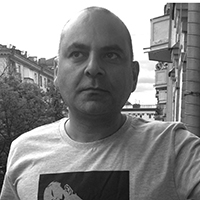KIEV, Ukraine — Pushed against the wall by Russia’s naked aggression, a wounded nation now wants to seal itself off completely from its jingoistic neighbor. Behind the electoral gambit played out at the polls on Sunday, meant to draw a philosophical and political line against the neo-imperialism of Russian President Vladimir Putin, there’s also a construction project.
Ukraine’s President Petro Poroshenko announced plans in early September to build an extensive wall—called, well, “The Wall”—on the country’s border with Russia that, theoretically at least, would keep Moscow out and secessionists in. The defenses would include an actual steel wall, in addition to watchtowers, trenches for soldiers, and a barbed no-man’s land running contiguous to the countries’ massive shared border. These miles-long fortifications will include 4,000 army dugouts, tank detachments, and sophisticated surveillance equipment to detect troop movements across the frontier.
Although the thousand-mile-long project (1200 miles to be exact) seems improbable in scope and almost as Quixotic as the Maginot Line, the government already has earmarked funds for the project, and work has begun on the border near the northern city of Kharkiv, away from the conflict zone.
During a high-profie visit to the wall site on October 15, Prime Minister Arseniy Yatsenyuk said that the project demonstrates that Ukraine and Russia are “not one nation, as Putin says, and the Kremlin thinks,” an rattled off a list of reasons it is supposed to make sense: stopping illegal immigration, stopping subversive, stopping smuggling, stopping the movement of weapons, stopping the movement of radioactive materials and, last but certainly not least, opening the door wider o the European Union by slamming the door in Russia’s face. “No one will provide us the visa-free regime with the E.U. if there is no border,” he said.
Yatsenyuk claimed that the E.U. already has set aside $20 million for the wall construction, and suggested it is important for eventual NATO membership as well.
Never mind that Ukraine is on the brink of default, and that the estimated cost of the wall would be €100 million , more than 10 times Ukraine’s current defense budget. Or, that the rebels—and Russia for that matter—would potentially attack those building the wall, and fire at its defenses.
That also didn’t stop Kiev’s Mayor Vladimir Klitschko from asking for German help and expertise in building the wall while in Berlin earlier this month. His unusual request raised eyebrows in Germany, where dark memories of the Berlin Wall linger on.
The hubristic wall project is the brainchild of Igor Kolomoisky, the feisty governor of Dnipropetrovsk, famous for having called Putin a “mad dwarf.” The owner of Privatbank, the nation’s largest, he also offered to put €10 million of his own monies towards the wall’s construction. He has also spun the wall to the nation as a massive “public works” project that would provide employment to those displaced by the war. Not surprisingly, a construction company in his region has already submitted a tender to build the project.
Although the whimsical wall project seems outlandish to most outsiders, it began to gain mainstream acceptance in late August as Russian forces made forays into Ukrainian territory to help the rebels. With its eastern borders under siege from Russia, Ukrainians feel cornered and insecure. The idea of a strong, German-built wall to keep the Russian bear at bay is appealing in its brutal simplicity. The president rightly compares it to Finland’s Mannerheim line of fortifications against the Soviet Union.
Though many have scoffed at the idea, the wall project gained momentum going into Sunday parliamentary elections, and tensions with Russia remain high. Ukrainian social media have embraced the wall project, and the prime minister’s recent visit to the construction site was widely applauded.
Some mainstream politicians, notably ex-Prime Minister Yulia Tymoshenko, have spoken out against the wall, but most have come out in favor.
“Instead of building a wall, Ukraine should be mending fences with Russia,” quipped a commentator on Russia Today, the Kremlin’s English-language TV network. RT also reported that former Soviet leader Mikhail Gorbachev has advised Kiev against building a wall with Russia.
Gorbachev is unlikely to deter the Ukrainians. In practical terms, it won’t be easy extending the wall to the border with the rebel territories’ borders with Russia. They’re likely to sabotage the project from the start, and it might even goad them into further aggression. But as anti-Russian rhetoric reaches a boiling point in the rest of the country, it looks like the grand plan for a great wall is going to be part of the national discourse for quite some time to come.





